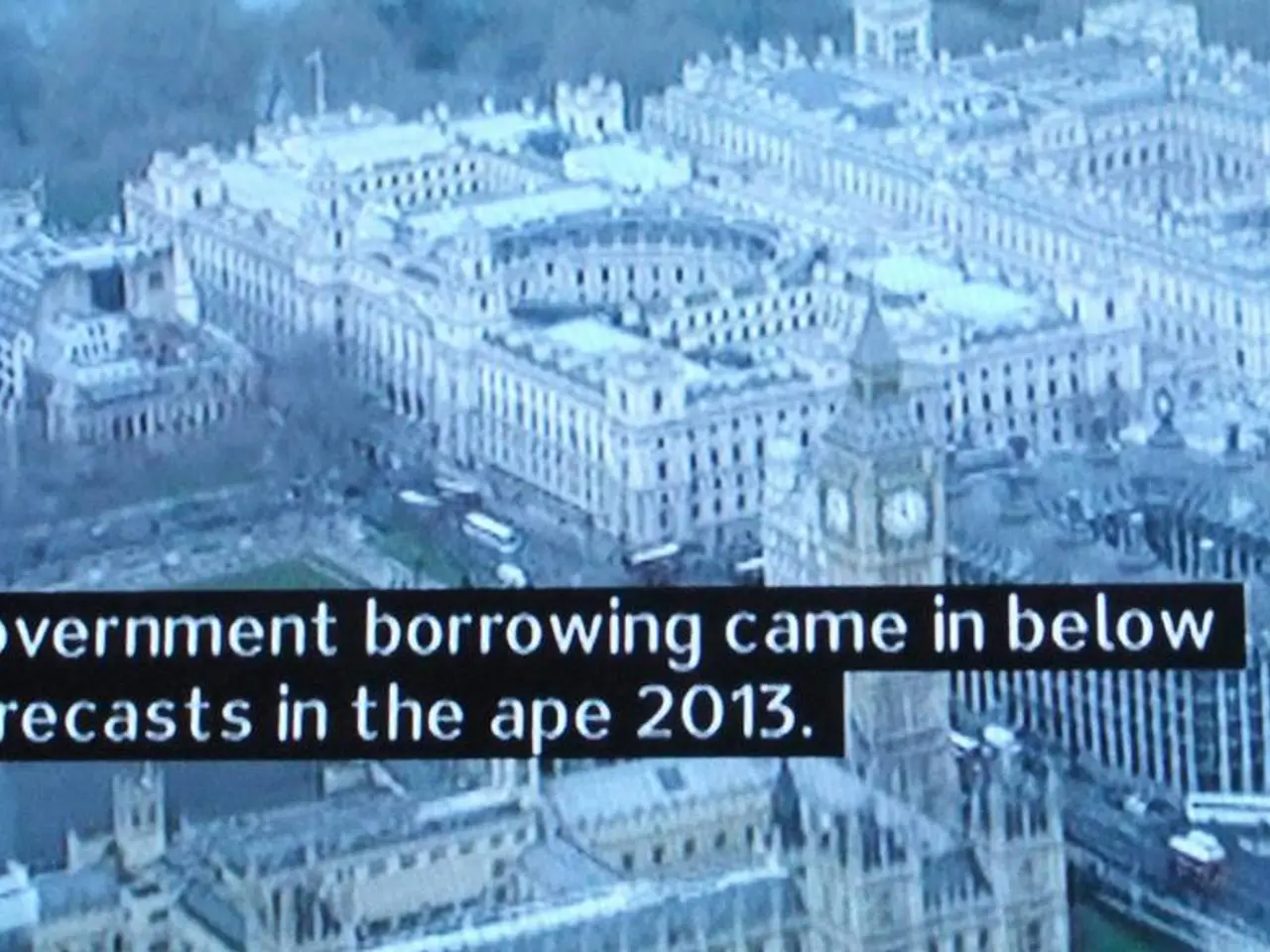Unrest escalates in the West Bank, now resembling a notably oppressive outdoor detention camp for Palestinians.
In the West Bank, a troubling trend of increasing settler violence against Palestinians has been observed in 2025. This violence, which includes physical assaults, shootings, arson, and property destruction, has led to a significant rise in casualties and displacement of families, particularly in areas like Hebron and its surrounding communities.
One of the most shocking incidents occurred on July 11, 2025, when Israeli settlers allegedly beat to death Sayfollah Kamel Musallet, a Palestinian-American U.S. citizen, near Al-Mazra’a Al-Sharqiya. Another Palestinian was killed by gunfire in the same incident. The U.S. ambassador demanded a thorough investigation, as settlers or soldiers have been responsible for the deaths of at least five U.S. citizens in the West Bank since October 2023.
From January to mid-2025, there were 757 reported settler attacks causing Palestinian casualties or significant property damage, a 13% increase compared to 2024. Between late July and early August 2025 alone, there were dozens of reported settler attacks, including a shooting death of a 24-year-old Palestinian man in Aqraba and the killing of another Palestinian through smoke inhalation from a settler arson attack. These incidents caused injuries, displacement of families (including children), and destruction of homes, vehicles, trees, and agricultural infrastructure.
Reports from UN experts suggest that settler violence appears to be a systematic pattern involving intimidation, destruction of Palestinian homes and livelihoods, land dispossession, and forcible displacement, undermining Palestinians' food security and agricultural presence. Attacks include arson, livestock theft, and poisoning of water sources.
Israeli human rights groups such as B'Tselem report an escalation in attacks by extremist settlers, with 440 incidents from January to June 2025 compared to 317 in the same period in 2024. Settlement expansions deep inside Palestinian areas facilitate these attacks and increase pressure on Palestinian communities.
The international community has expressed concern over these escalating attacks and their humanitarian impact. The U.S. government has condemned fatal incidents involving its citizens and called for Israeli investigations. The UN Office for the Coordination of Humanitarian Affairs (OCHA) and the UN Human Rights Office regularly document these attacks and their consequences, calling attention to the ongoing violations and the plight of Palestinians. UN human rights experts have explicitly called for an end to violence by both settlers and Israeli security forces in the West Bank, emphasizing Israel’s obligations as the occupying power to protect the Palestinian population.
The West Bank is marked by a complex system of control and segregation, with around 80 checkpoints in the H2 sector of Hebron alone. Palestinians and Israelis must drive vehicles with distinct license plate colours: white and yellow, respectively. Hebron is divided into two zones, with the H2 sector under Israeli jurisdiction and home to around 800 Israeli settlers and 40,000 Palestinians.
Residents of Palestinian communities, such as Susya, face unique challenges. They rely on solar panels and water cisterns for electricity and water, which are often destroyed by Israeli bulldozers. Access roads to Susya are blocked, preventing residents from reaching Yatta for supplies. Residents like Hamdan Al-Huraini face the constant threat of home demolitions due to Israeli control in Area C.
May, a Palestinian resident, faces long wait times, technical issues, and even strip searches at checkpoints. Driving in the West Bank requires special skills and knowledge of checkpoint procedures. Settlements are installed on hills controlling valleys, preventing the continuity of Palestinian territory and the life of farmers. Palestinians are prohibited from using exclusive roads for Israelis in the West Bank.
The Israeli military occupation of the West Bank for 56 years has led to a system of control and segregation, internationally recognized as a form of apartheid. In recent months, Israeli forces have killed 167 Palestinians and detained more than 1,512 since October 7. Palestinians in Hebron are often held at checkpoints for varying lengths of time, depending on the guard soldier's decision. Issa Amro, a Hebron activist, was arrested by Israeli forces and soldiers on October 7 and faces 18 charges in an Israeli military court.
The Israeli government provides tax advantages, better access to education, and housing facilities to settlers, leading to a significant increase in their numbers. Settlers' presence near checkpoints can pose a risk to Palestinians, as any mistake could result in violence. More than 1,025 people have been expelled from 15 Palestinian communities and East Jerusalem.
The situation is far from ideal, with Palestinians living under the constant threat of violence and displacement. The international community continues to urge immediate action to stop these abuses and uphold rights under international law.
Read also:
- Court petitions to reverse established decision on same-sex marriage legalization
- Proposed Standardization of Food Labeling Laws Among Member States by the Commission
- Commemoration of 200 Days of American Resurgence Unveiled
- Minister Bärbel Bas expresses doubts about her tenure as a minister following a recent interview during the summer.







